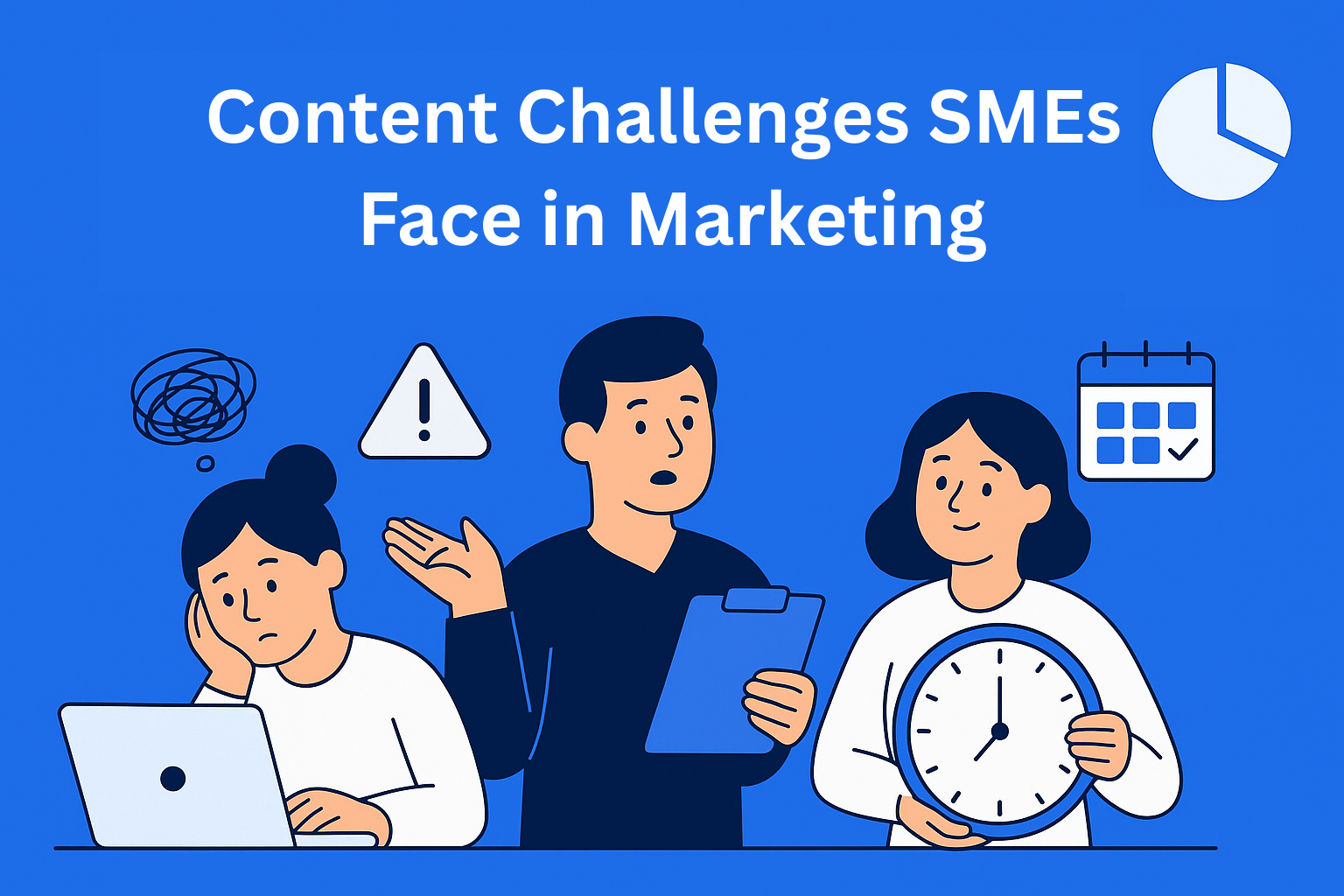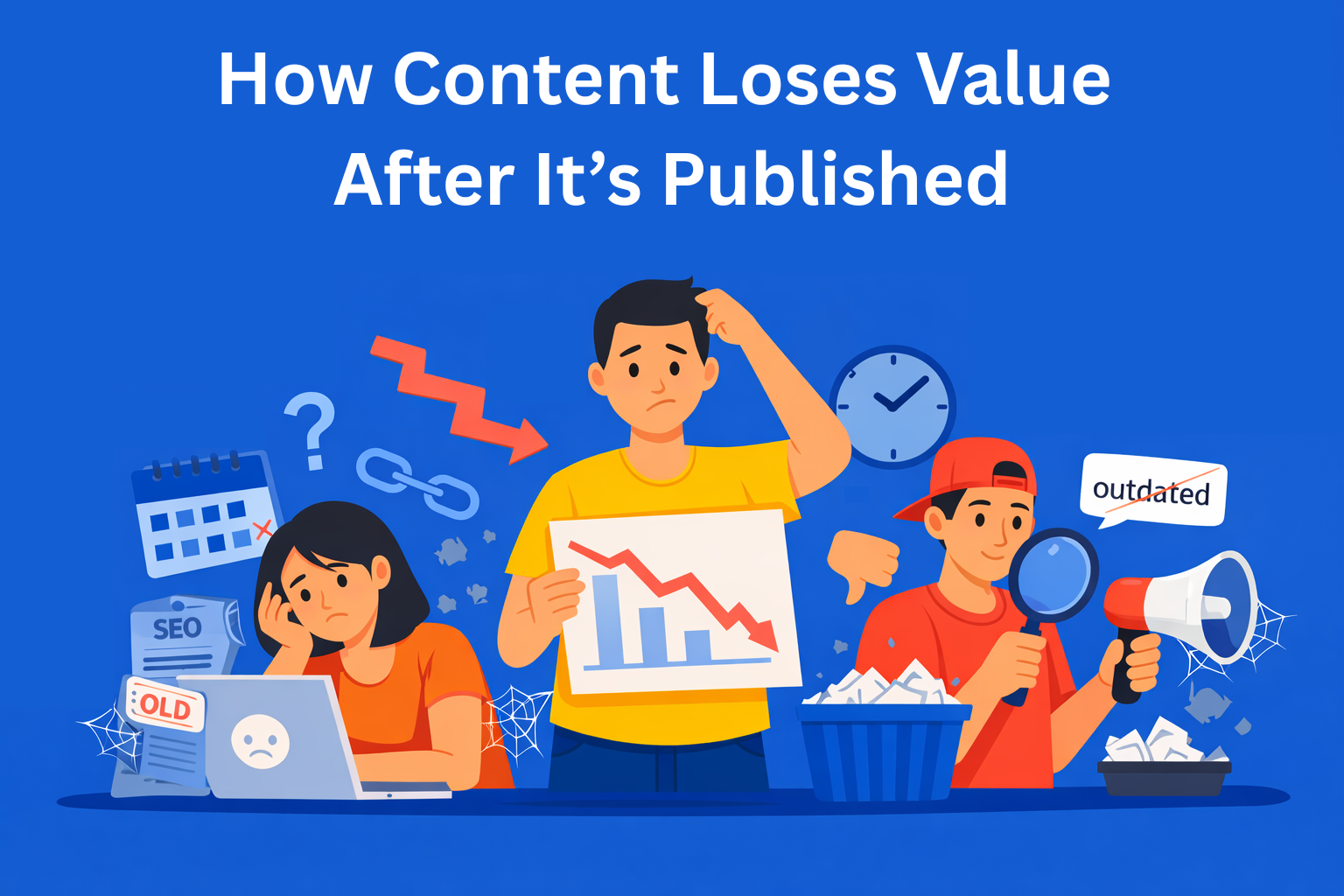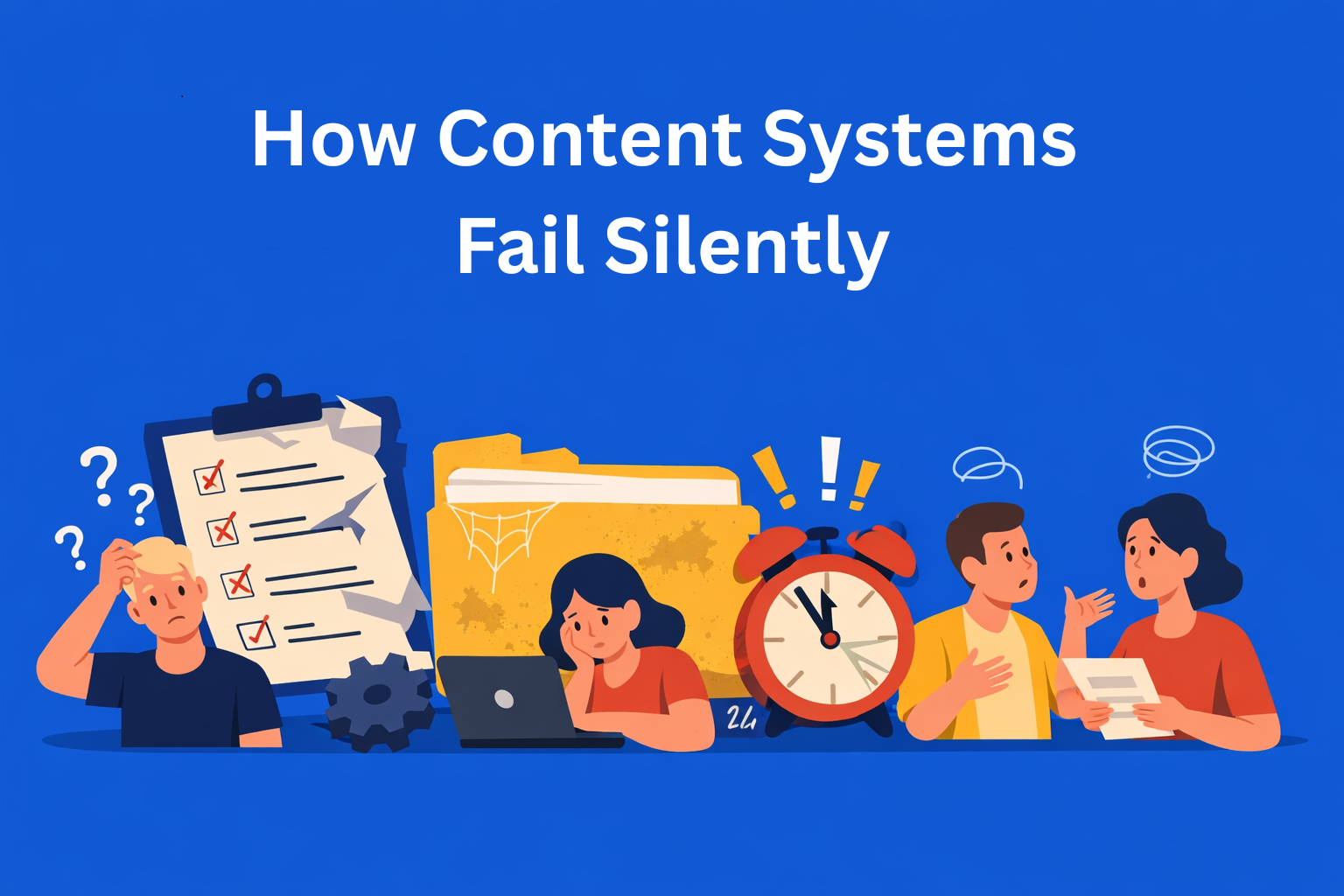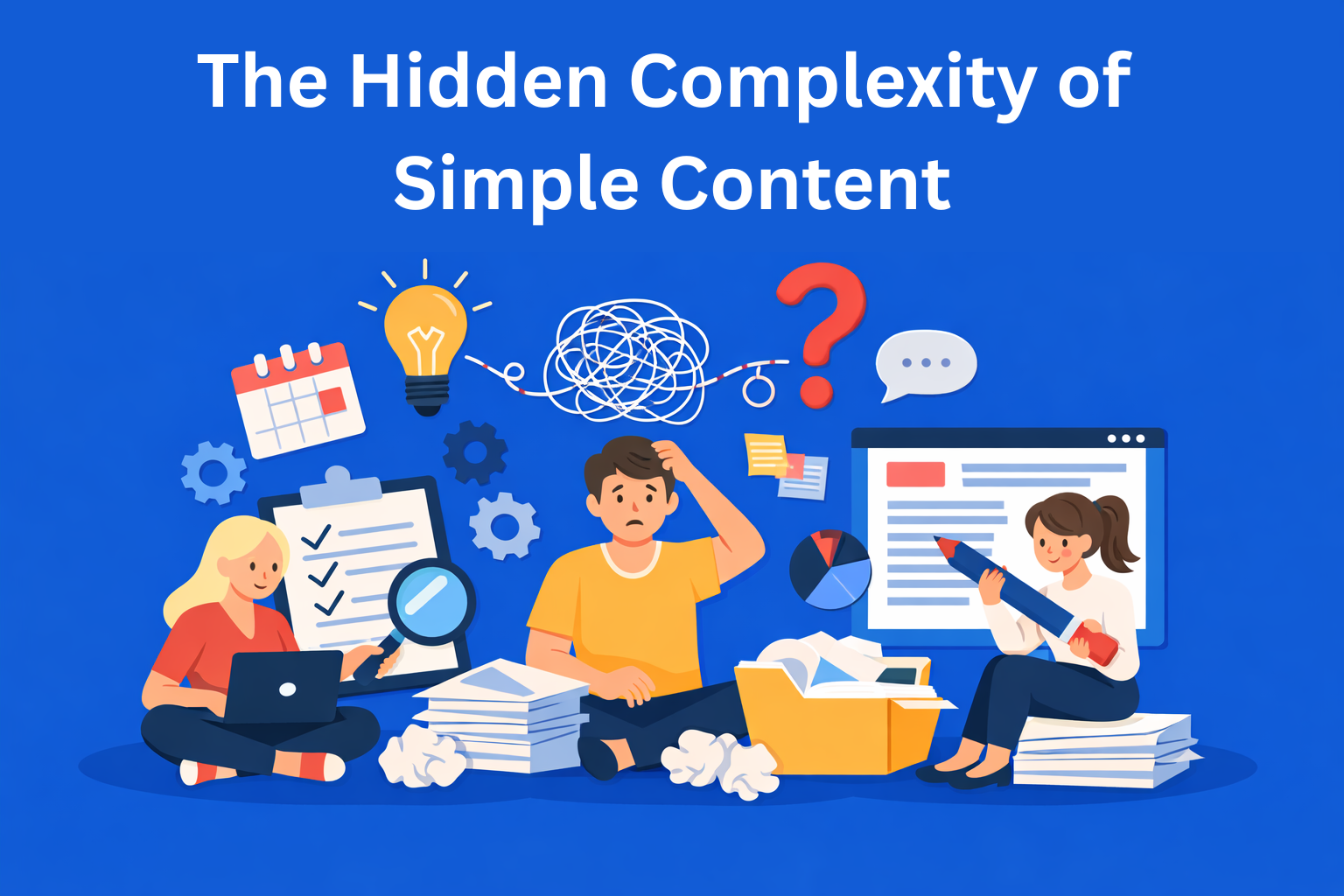The Biggest Content Challenges for SMEs in Marketing & Advertising (And How to Solve Them)
Discover the biggest content challenges Subject Matter Experts (SMEs) face in marketing and advertising, from short deadlines to brand voice issues, and learn simple strategies to create accurate, consistent, and effective content.

When we talk about marketing and advertising, we often think of teams working on creativity, design, and promotion. However, one of the most important roles in creating strong content belongs to Subject Matter Experts (SMEs). These are people who have deep knowledge in their specific field - whether it’s technology, medicine, finance, or another industry. Their knowledge makes content reliable and valuable. But there is one problem: SMEs are often not marketers. Their job is not to write blogs, give interviews, or come up with slogans. And here comes the challenge - how do we use their expertise without overloading them? In this blog, we will look at the biggest content challenges that SMEs face in marketing and advertising, and how we can solve them in simple ways.
Key Takeaways
- Balance is everything - SMEs shouldn’t carry the full content burden. Let them provide input while marketers handle creation.
- Brand voice needs structure - Without tone guidelines, content becomes inconsistent and confusing for audiences.
- Speed doesn’t mean chaos - Pre-built templates and early planning help SMEs deliver input without pressure.
- Accuracy matters - A two-step process (marketing writes, SMEs verify) ensures quality without slowing down content flow.
- Cross-team understanding is key - Small syncs and mutual education close the gap between creativity and technical depth.
1. Balancing expert work and marketing demands
One of the main challenges for SMEs is balancing their everyday responsibilities with extra marketing tasks. For example, an engineer who works on product development may be asked to write a technical article or participate in a campaign. This means that besides their main tasks, they also have to find time for marketing. Content marketing often feels like extra work, not part of their role.
And then deadlines are missed, information arrives too late, and campaigns suffer. The marketing team gets frustrated because they don’t have all the data, while the SME feels like they are being buried with tasks that are not their main focus.
How to solve this problem?
- Define clear roles - the marketing team creates the content, the SME provides input.
- Instead of writing articles from scratch, SMEs can give short answers to questions or record a quick voice note. Based on that, the content writer can develop a blog or campaign.
- Agreed deadlines and calendars help align the work so everyone knows what needs to be done and when.
2. Inconsistent voice and terminology
Another big challenge is brand voice. SMEs write and speak from their own perspective, often using technical terms that the audience doesn’t understand. For example, a doctor might write a text full of medical abbreviations that the average reader won’t get. This makes content hard to read, and the marketing campaign loses its effect.
If each SME uses a different tone and style, the brand appears inconsistent. One text sounds too formal, another too technical, and the third like an internal document.
How to solve this problem?
- Create a brand voice guidelines document - short rules about how the communication should sound. This includes tone (friendly, professional, inspiring), writing style, and examples of sentences to use or avoid.
- The marketing team should act as a translator - taking raw information from the SME and turning it into content that is easy for the audience to read.
- Use metaphors and everyday examples to make complex topics simple to understand.
3. Short deadlines and fast delivery
Marketing and advertising demand speed. Campaigns are planned weeks in advance, but there is always a moment when something is needed “yesterday.” SMEs then get tasks with short deadlines, which makes their everyday work even harder.
The result is often rushed content or complete delays. For example, if the marketing team needs an expert quote for a campaign and the SME is busy, the campaign might launch without that input and feel less convincing.
How to solve this problem?
- Create a content intake process - pre-prepared questions and templates that make it faster to provide input. Instead of asking “write an article,” ask something specific like: “What are the 3 main benefits of this product?”
- The marketing team or content writer can use raw SME input and turn it into a finished text.
- Plan ahead - the content calendar should be aligned with the times when SMEs are available.
4. Maintaining quality and accuracy
Another challenge is keeping content accurate. If the marketing team writes content without SME input, mistakes can easily happen. For example, a marketer might explain the way something works incorrectly and damage the brand’s reputation. In the digital world, where audiences quickly notice errors, this can become a serious issue for your content marketing strategy.
How to solve this problem?
- Create a “two-pass” process: the marketing team writes, the SME only checks accuracy. This way SMEs don’t spend too much time writing, but they make sure everything is correct.
- Build a knowledge base - a document where SMEs add frequently asked questions, explanations, and information that the marketing team can use independently.
- Automate the review process with tools like EasyContent, where all comments and changes are tracked in one place.
5. Collaboration between SMEs and the marketing team
Finally, one of the biggest challenges is collaboration itself. SMEs and marketing teams often speak different “languages” - some focus on details and accuracy, while others are focused on creativity and appeal. Without understanding, conflicts can easily occur.
How to solve this problem?
- Introduce the marketing team to the basics of the SME’s field - this helps marketers better understand the topic and ask smarter questions.
- Educate SMEs on marketing basics - short workshops that explain why tone and style matter, how campaigns work, and what consistency means.
- Hold regular short meetings where goals, tone, and content formats are aligned. These meetings prevent misunderstandings and speed up the process.
- Use collaboration tools like EasyContent, where you have the option of a customizable workflow and many additional features that can speed up communication and make collaboration between SMEs and marketing teams easier.
Conclusion
Subject Matter Experts are key for creating quality content in marketing and advertising. Their knowledge is valuable, but without good collaboration and clear rules, their help can become a problem. The most common obstacles are too many responsibilities, inconsistent communication, short deadlines, accuracy checks, and collaboration issues.
The solution lies in the simple strategies we outlined above. When these processes are added to content creation, SMEs no longer see marketing as an extra burden but as part of their job where they can clearly show their knowledge.
In the end, it’s important to remember that even small changes can make a big difference. If this week you add just one thing (for example, a content calendar or a checklist) your SMEs will find it easier to contribute, and your process will become better and faster.






